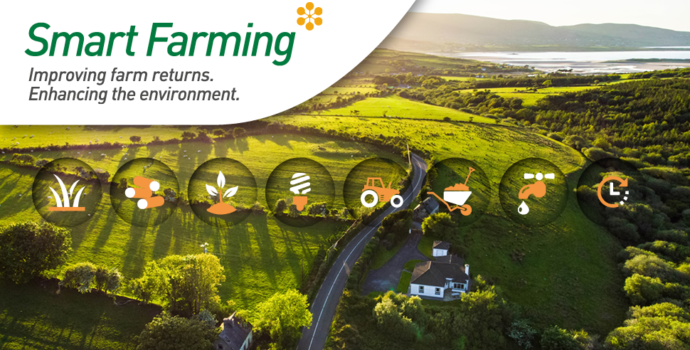Smart Farming Results for 2019 Show Average Savings of €6,300 and 10% Reduction in Climate Impact

Smart Farming, the voluntary resource management programme run by IFA in partnership with the Environmental Protection Agency, has announced its 2019 results with average cost savings on participating farms of €6,336.
This rounds off a very successful 2019, with Smart Farming being awarded the inaugural Talamh Agri-Innovation award at the RDS Spring Awards and selected as a Sustainable Development Goals Champion for 2019 and 2020 by Richard Bruton, Minister for Communications, Climate Action and the Environment.
The headline results for 2019 are as follows:
- Average cost saving on farms of €6,336
- 10% average greenhouse gas emissions reductions identified on farms
- Addressing soil fertility accounted for 24% of the savings
- Improved grassland management accounted for 23% of the savings
Commenting on the results, IFA President Joe Healy said, “2019 has been a very busy and successful year for Smart Farming. It is really great to see farmers’ good work being recognised at the RDS Spring Awards and also being selected as a Sustainable Development Goals Champion for 2019 and 2020. This provides a positive platform for farmers to build on their sustainability actions, in the face of increasing climate, biodiversity, air and water challenges”.
Laura Burke, EPA Director General added, “Since 2014, Smart Farming has identified pathways and solutions for farmers to reduce the environmental burden of agriculture, while also improving farm finances. In 2019, it was recognised for its leadership through an RDS Talamh Agri-Innovation award and the national Sustainable Development Goals Champions initiative. In a fast-changing world, the EPA will continue to work with the IFA to deliver best-practice guidance, driven by the latest science. The Agency calls on farmers and agribusiness leaders across the country to participate in Smart Farming and ensure the long-term environmental and economic sustainability of Ireland’s agricultural sector.”

